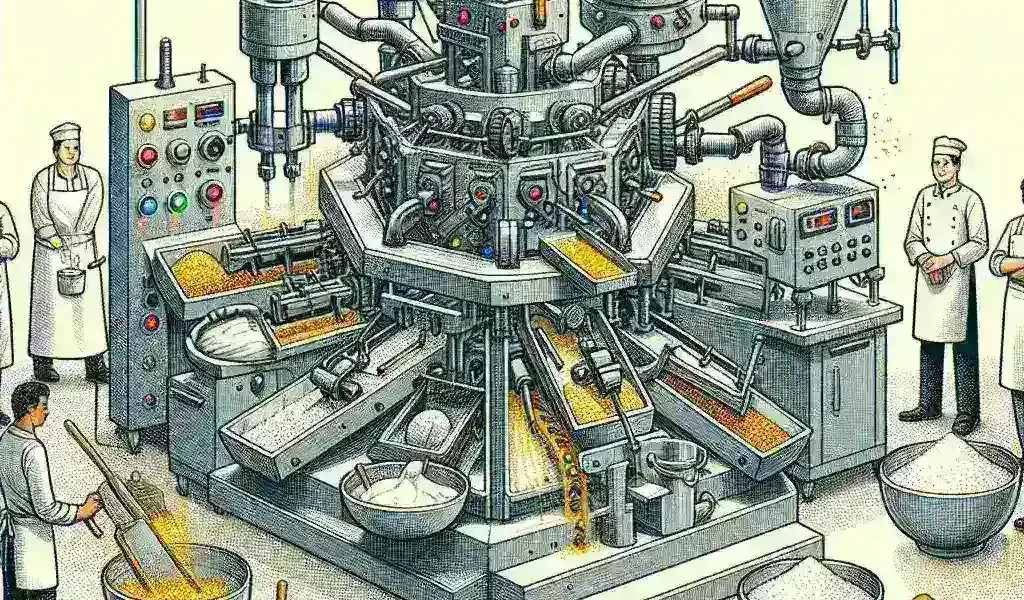Chipotle Testing Robotic Tortilla Chip Maker in U.S. Restaurants
Introduction
In the ever-evolving landscape of the fast-casual dining industry, innovation remains a key driver for success. Chipotle Mexican Grill, renowned for its commitment to fresh ingredients and high-quality food, has recently taken a bold step into the future by testing a robotic tortilla chip maker in its U.S. restaurants. This article delves into the details of this exciting development, exploring its implications for the brand, customers, and the food industry at large.
The Rise of Automation in Food Service
The food service industry has been gradually embracing automation, with robots and AI increasingly becoming integral to operations. From flipping burgers to brewing coffee, technology is reshaping how food is prepared and served. Chipotle’s venture into robotic tortilla chip making is part of a broader trend where restaurants prioritize efficiency, consistency, and cost-effectiveness.
Chipotle’s Commitment to Quality
Founded in 1993, Chipotle has always focused on high-quality, responsibly sourced ingredients. The company has built its reputation on offering customizable meals that cater to various dietary preferences. However, maintaining this quality while scaling operations can be challenging. By integrating robotic technology, Chipotle aims to enhance consistency in the preparation of its beloved tortilla chips.
The Robotic Tortilla Chip Maker
This innovative machine is designed to automate the tortilla chip-making process, starting from the dough preparation to the frying stage. The robotic system promises to deliver perfectly cooked chips every time, reducing the chances of human error while ensuring that each batch meets Chipotle’s quality standards.
Benefits of Robotic Technology
- Increased Efficiency: Automating the chip-making process allows for faster production, enabling restaurants to serve customers more quickly during peak hours.
- Consistency: The robotic maker ensures that each chip is uniform in shape, size, and taste, enhancing the overall customer experience.
- Cost-Effectiveness: Reduced labor costs and minimized waste can lead to significant savings for the company.
- Innovation: Embracing technology positions Chipotle as a forward-thinking brand, appealing to tech-savvy consumers.
Challenges and Considerations
While the benefits of robotic technology are significant, there are challenges that Chipotle must navigate. For instance, initial setup costs for robotic systems can be high, and training staff to work alongside automated processes can present hurdles. Moreover, as with any technology, there is a risk of equipment malfunction, which could disrupt operations if not managed properly.
Historical Context of Chipotle’s Innovations
Chipotle has a long history of embracing innovation. From its early days of introducing the fast-casual model to its commitment to sustainable sourcing and food safety, the company has consistently sought to improve the dining experience. The introduction of a robotic tortilla chip maker is a natural progression in Chipotle’s journey towards modernizing its operations while adhering to its core values.
Future Predictions for Robotic Integration
As Chipotle tests this robotic maker, industry experts predict a growing trend of automation in restaurants. If successful, we could see similar technologies deployed in other areas of food preparation, such as salsa and guacamole production. This shift could lead to a new era of dining where customers enjoy not only fresh and flavorful meals but also the efficiency that robotics can bring.
Cultural Relevance
The growing fascination with robotics and artificial intelligence reflects broader societal trends. Consumers today are more inclined to trust technology, particularly in an age where convenience is paramount. Chipotle’s move to incorporate robotics taps into this cultural shift, positioning the brand favorably among its target audience.
Expert Opinions
Industry experts have weighed in on Chipotle’s innovative approach, emphasizing the importance of balancing automation with the human touch that customers value. “While technology can enhance efficiency, the essence of dining out is the experience and connection with staff,” notes a prominent food industry analyst. This perspective highlights the challenge of integrating robots without alienating loyal customers who cherish the personal interactions at Chipotle locations.
Conclusion
As Chipotle embarks on this journey of testing a robotic tortilla chip maker in its U.S. restaurants, it stands at the intersection of tradition and innovation. By embracing technology, the company aims to enhance operational efficiency while maintaining its commitment to quality. The success of this initiative could redefine how Chipotle and similar brands operate, offering a glimpse into the future of dining. As the industry evolves, it will be fascinating to see how Chipotle navigates the complexities of automation while staying true to its core values.

